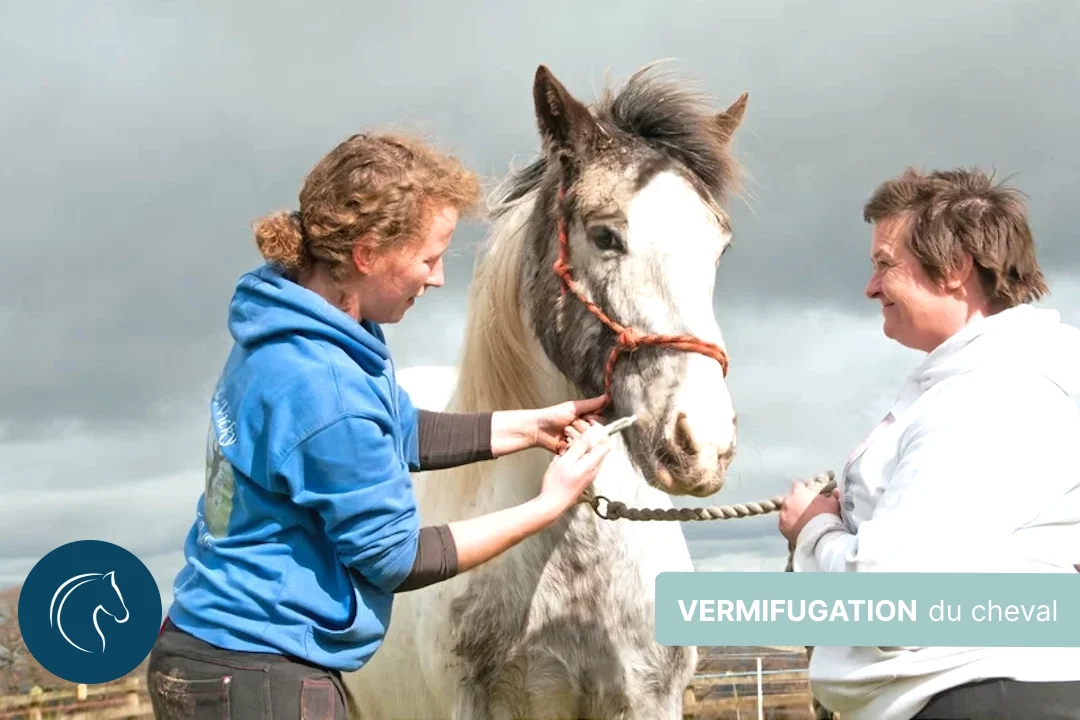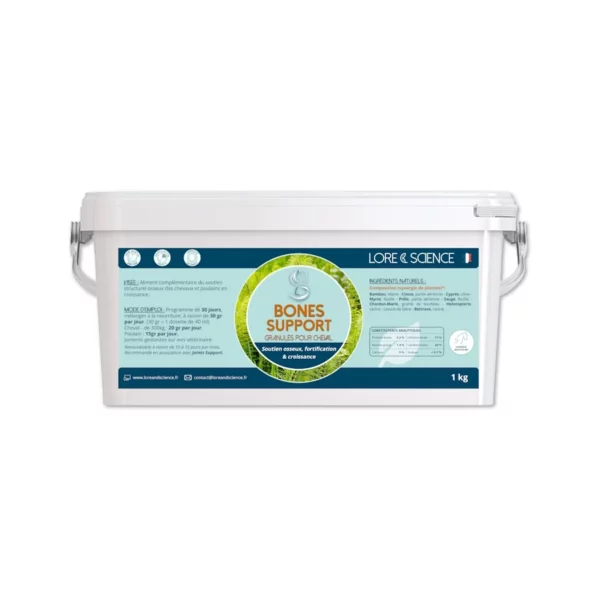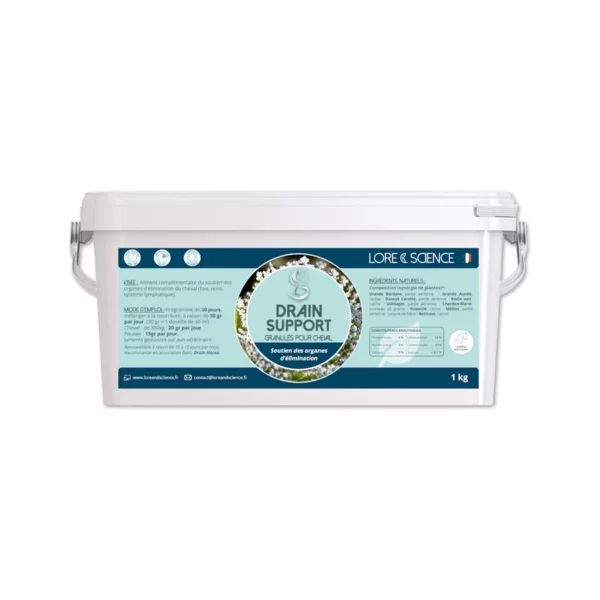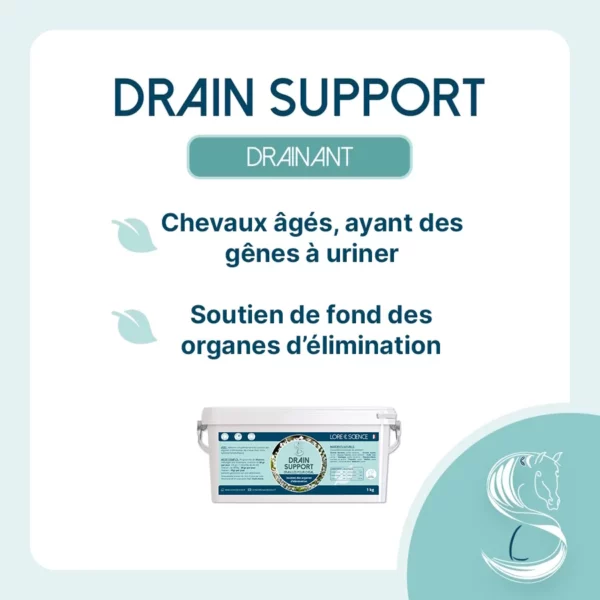Intestinal worms are digestive parasites that can compromise horses' intestinal health, affect their general well-being and even cause major health problems. While traditional chemical dewormers are often used to combat these parasites, there are effective natural solutions that can be just as effective while respecting horses' intestinal flora. In this article, Lore & Science tells you all you need to know about the different types of intestinal worms that can infest horses, the symptoms associated with these infestations, and the natural deworming solutions available to maintain good intestinal hygiene.
What are the different types of intestinal worms in horses?
Intestinal worms develop in the digestive system of horses. They feed on the nutrients ingested by the animal, leading to nutritional deficiencies and digestive disorders. Small and large strongyles, roundworms, pinworms, tapeworms... Let's discover these parasites that can cause major problems for our equines.
Large and small strongyles
Large strongyles, or Strongylus vulgaris, are one of the most dangerous parasites for horses. These worms can cause severe colic through damage to the intestinal arteries. The larvae migrate through the blood vessels, causing inflammation and possible obstruction, which can lead to intestinal ischemia, a potentially fatal condition.
Small strongyles, or cyathostomes, are more common and less dangerous than large strongyles, but their impact on a horse's intestinal health should not be underestimated. These worms can cause inflammation of the intestinal wall, leading to chronic diarrhoea and weight loss. Small strongyles are mainly found in the horse's large intestine and cecum, where they can become encysted, making their eradication more complex.
Roundworms
Roundworms, or Parascaris equorum, mainly affect foals and young horses. Adult horses generally develop immunity to these parasites. Ascaris can obstruct the intestines due to their large size, causing colic and severe digestive disorders. They can also migrate through the liver and lungs of foals, causing damage to these organs.
Pinworms
Pinworms, or Oxyuris equi, are smaller worms that reside in the horse's rectum and large intestine. Although less dangerous than other types of intestinal worms, they cause intense itching around the anus, which can lead to skin lesions caused by the horse's constant rubbing against objects to relieve itself.
Tapeworms
You've probably already heard of tapeworms, or Anoplocephala perfoliata. These are flat parasites that attach themselves to the small intestine and ileo-caecal junction. These worms can cause local inflammation, ulcers and colic. Although massive tapeworm infestations are rare, they can lead to intestinal obstructions, putting the horse's life at risk.
Symptoms and diagnosis of parasitic infestations
Recognizing the signs of intestinal worm infestation is essential to intervene quickly and avoid serious complications. Symptoms may vary depending on the type of parasite and the level of infestation, but there are some common signs that should alert you.
What are the symptoms of intestinal worms in horses?
The first symptoms of an infestation often go unnoticed. Unexplained weight loss , often one of the first visible signs, occurs when these digestive parasites monopolize the animal's essential nutrients. At the same time, a coat that has become dull and disheveled may reveal a nutritional deficiency linked to compromised absorption of nutrients by a colonized intestine. Digestive disorders are not uncommon either, with episodes of chronic diarrhea frequently observed in horses harboring small strongyles or tapeworms.
Recurrent colic, often associated with weight loss or diarrhea, is another sign of possible infestation by large strongyles or roundworms. Pinworms cause intense anal itching. Horses tend to rub themselves compulsively, causing skin lesions around the anal region.
How to diagnose parasitic infestations?
Parasitic infestations are diagnosed byexamining the horse'sstools. If in doubt, consult your veterinarian. He or she will analyze the dung samples toidentify intestinal worm eggs and assess the level of infestation. This method, known as coproscopy, is essential for determining the type of parasite involved and adapting treatment accordingly.
Regular stool examinations are then recommended to monitor the effectiveness of deworming treatments and prevent future infestations. Your veterinarian will then prescribe a deworming program based on the results of the coproscopy. The main aim is toavoid over-treatment and limit the development of parasite resistance.
What are the natural solutions for worming horses?
The use of natural dewormers to combat intestinal worms is becoming increasingly popular among horse owners as a means of limiting the impact of chemical treatments on the intestinal flora of their equines. In fact, certain medicinal plants possess vermifugal properties that help expel digestive parasites without disturbing the horse's intestinal balance. All in all, optimal intestinal hygiene must be maintained to treat or prevent parasitic infestations.
Plants such as thyme and garlic have antiparasitic, antibacterial, antiseptic and deworming properties. To ensure that you treat your horse naturally and safely, we recommend the use of tested feed supplements such as Verless. This natural food supplement is particularly suitable for horses showing signs of intestinal parasitism. By acting in synergy with the body's natural defenses, Verless not only helps reduce the parasite load, but also reinforces thebalance of the intestinal flora.
-
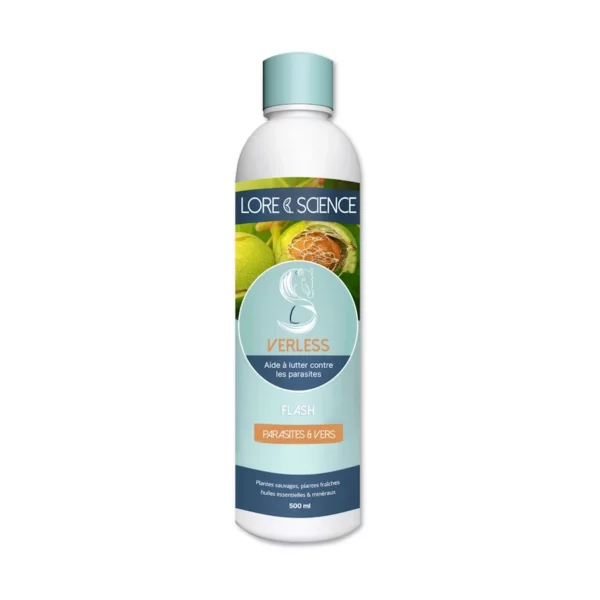 Verless - Worms, parasites and horse intestines29,90 € - 79,90 €
Verless - Worms, parasites and horse intestines29,90 € - 79,90 €
Conclusion
As you can see, managing intestinal worms in horses requires a holistic approach combining prevention, early diagnosis and appropriate treatment. Although chemical dewormers are commonly used, the integration of natural solutions offers an effective way to combat parasites while respecting the intestinal flora and ensuring good digestive hygiene.
Share your experience or questions with us in the comments ↓

